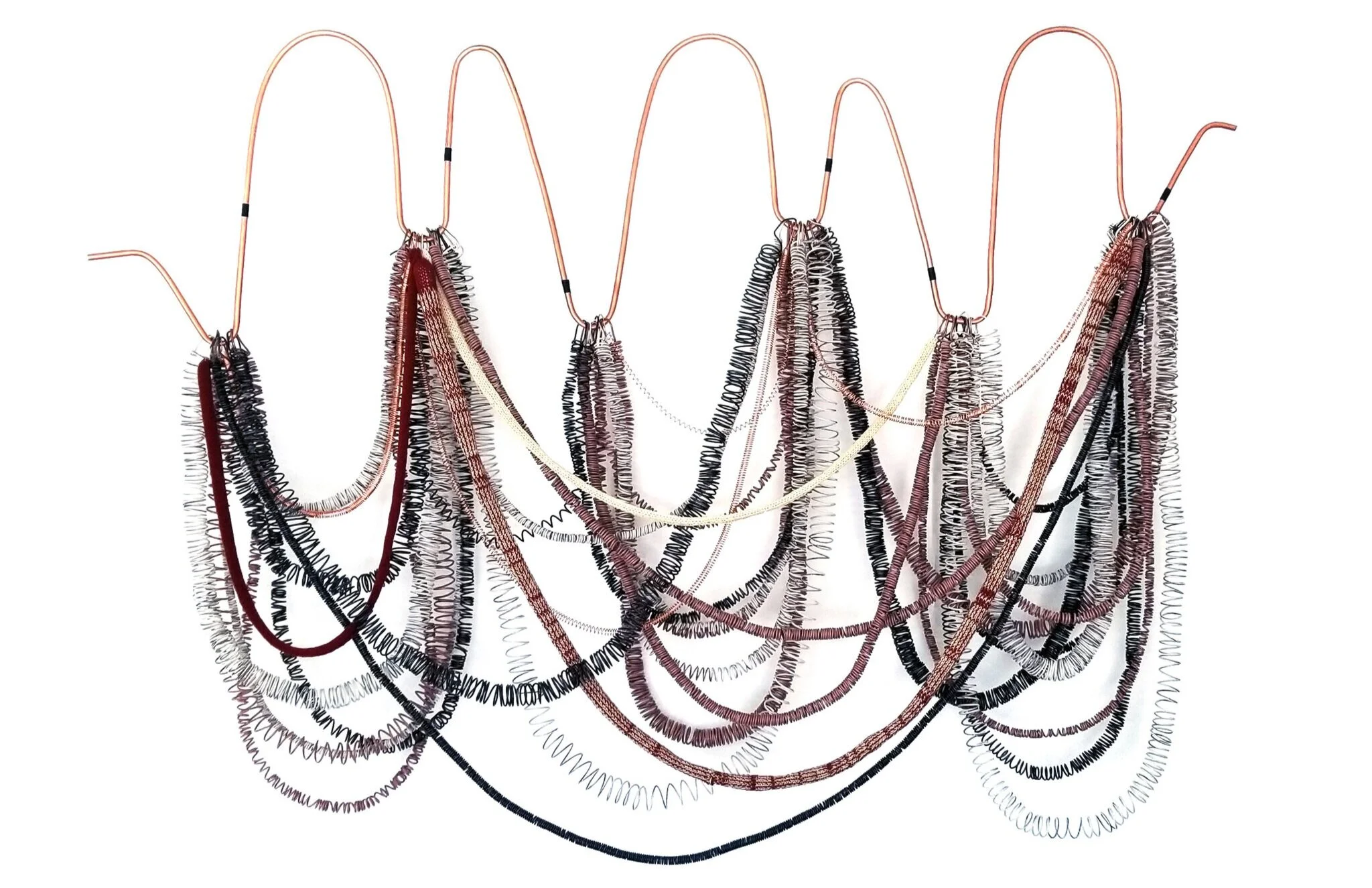BLOODLINE Series, 2020
(detail) BLOODLINE no.5 / July 2020 / 30” x 48” x 6”
"Epigenetics: The study of changes in organisms caused by modification of gene expression rather than alteration of the genetic code itself ." -Oxford Dictionary
BLOODLINE no.3 / February 2020 / 68" x 50" x 6”
Science is proving what has been known to some cultures inherently forever, that our lived experiences affect future generations. The lived experience of my grandmother can modify the expression of the genes I inherit from her without changing the genetic code itself, and without me ever knowing her. The Greek prefix epi- in epigenetics implies features that are "on top of" or "in addition to" the traditional genetic basis for inheritance, our DNA. Tracking trauma (and trigger-responses to trauma) is at the core of studies that prove that the experiences of our ancestors impact our present existence. Trauma-responses can become key elements of enculturation over generations.
Undulating copper conduit symbolizes the bloodline, a channel of lineage. Hanging coils of electrical wire formally suggest spiraling DNA or umbilical cords and conceptually symbolize the lived experience and energetic-transference that leaves and returns back to the main conduit. The literal weight of inherited trauma on the entire bloodline is evident as it builds with each generation, unacknowledged.
While it is easy to imagine how the descendants of generationally oppressed, enslaved, and murdered people can inherit that trauma from their ancestors, it is less obvious that the descendants of oppressors (as well as the benefactors of an unjust system) also carry trauma in their bodies from their ancestors. Anger, guilt, shame, fear, rage, and violence take many forms in a culture that is detached from the full extent of its lineage.
During this time of uprising, we have the power to reconcile our complex history as inheritors from the oppressed and the oppressors, alike. Facing our full inheritance (the underlying truths of our cultural stories that are not given words, the destructive nature of assimilation to an unjust system, and the behavioral enculturation that system requires) is necessary to stop repeating harmful inherited patterns.
Where scientists prove epigenetics, mystics believe that healing the present can extend healing to the past and the future.
detail / BLOODLINE no. 3 / showing coiled electrical wire, copper wire, and knit wool-yarn.
BLOODLINE no.4 / February 2020 / 70" x 60" x 6”
BLOODLINE no.3 & no.4 were completed in February 2020 and scheduled to be installed in the Mayor’s Reception Room at Duluth City Hall on April 1st as part of the curatorial programming of the Duluth Art Institute. Due to COVID19, the installation was temporarily postponed.
BLOODLINE no. 2 / January 2020
BLOODLINE no. 1 / January 2020








